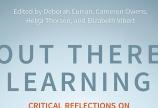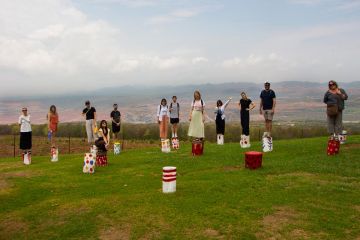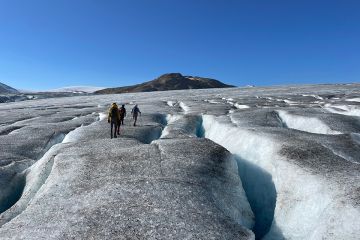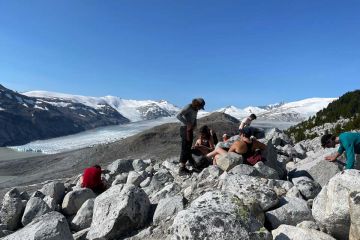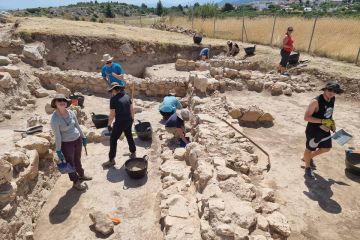Solid (pedagogical) ground for field school experiences
Social Sciences, Law, Humanities
- Anne MacLaurin
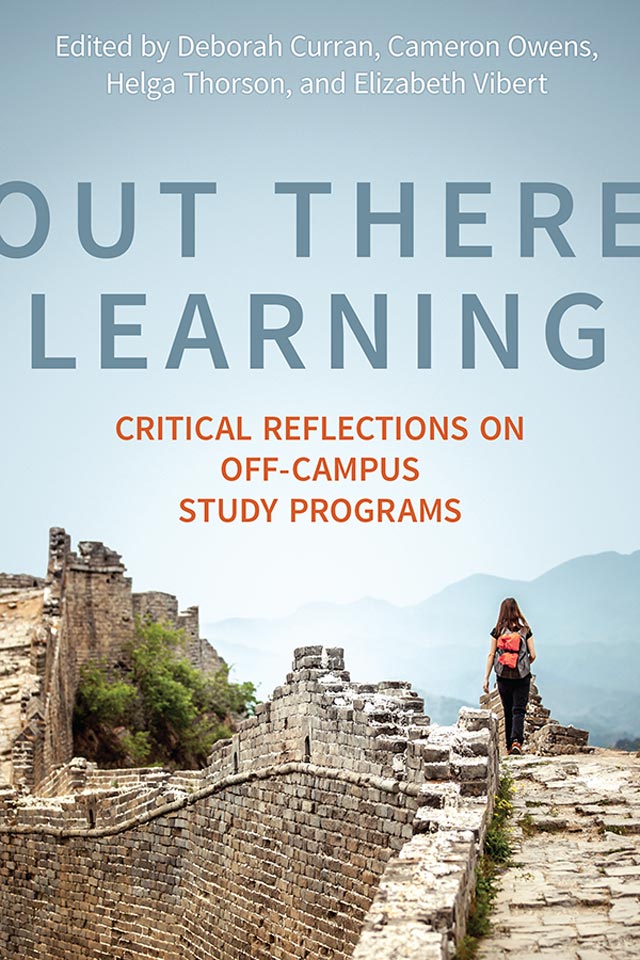
New book gathers expertise of UVic field school instructors to learn from—and extend—off-campus teaching opportunities
As field schools become more popular, both at UVic and in higher education generally, the publication of a first-of-its-kind book, Out There Learning: Critical Reflections on Off-Campus Study Programs, is timely. Edited by a team of UVic faculty members across five faculties, the book is unique in its multi-disciplinary scope.
Cameron Owens, an Associate Teaching Professor from the Department of Geography, and Associate Professor Deborah Curran, who is cross-appointed in the Faculty of Law and School of Environmental Studies, were among the scholars who contributed to the book, which was launched in March at the Legacy Gallery.
“The process of collaboration with this book was unique,” says Owens. “All of the contributing authors met face-to-face for a workshop to discuss their chapters, which I think leads to a more coherent and integrative read; a community was built” he adds.
Owens hopes the book sparks a discussion about the value of short-term off campus study programs. It is often assumed these programs have great pedagogical benefit but Owens and other authors wanted to subject this claim to critical scrutiny. Importantly, there is the question of how students can work with communities they visit rather than extract from them. Owens’ field programs include a component where students invest the knowledge and enthusiasm gained in the field into projects that will benefit the community.
Co-editor and law/environmental studies professor, Curran teaches the only interdisciplinary field school based in law in Canada.
“This book recounts that exploration of the power and potential of learning through field school experiences from student- and community-centred perspectives, and challenges us all to more carefully craft learning experiences that connect people, place, history, emotion and ideology,” says Curran.
The book includes three sections on the pedagogy of field schools, implications of place-based learning and assessing short-term study abroad programs.
Helga Thorson (Germanic and Slavic studies) and Elizabeth Vibert (history) were the book’s other two editors.
“This is the first book of its kind to delve into critical issues related to off-campus learning. Some disciplines—such as geography and geology—have long-standing traditions running field schools, whereas in other disciplines— for example, law and history—off-campus study programs are relatively new,” explains Thorson.
“I’m really proud of the way the book brings together insights into field schools in Indigenous spaces, Global South spaces, and elsewhere. I’m also very proud of the integration of student voices in the volume,” says Vibert.
Out There Learning also includes 13 student-written vignettes about their experiences. One student writes, “What you can’t get from a textbook: a field course in the context of a legal education is a chance to learn more than the black and white of a statute or case decision. It provides the colour that gets bleached form the pages of our textbooks and brings life back to the law.”
Photos
In this story
Keywords: field schools, education, student life, study abroad, teaching, geography, environmental sciences
People: Cameron Owens, Deborah Curran, Helga Thorson, Elizabeth Vibert
Publication: The Ring

